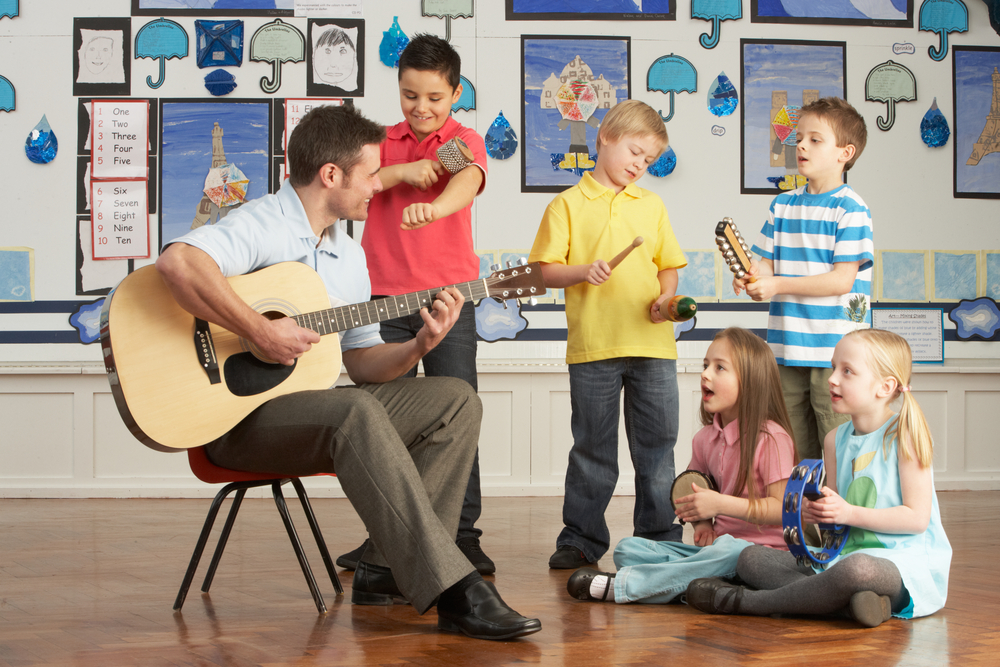Benefits of learning an instrument
With international teach music week fast approaching, it is important for teachers to consider integrating music within their lesson planning. The week commences on the 20th-26th of March. The purpose of the week is to encourage teachers within music and in schools to involve and introduce children to the world of music.
What better way to celebrate international teach music week than encouraging your pupils to play an instrument? To help you understand why playing an instrument is vital and to encourage you to involve music within your lessons, we have sourced some benefits of learning an instrument.
Helps the brain to grow
As crazy as it seems, neuroscience studies show that music can help the brain to grow in children. Being involved in musical activities like playing an instrument, stimulates the brain, which leads to an improved brain structure. It also helps to form neural connections in a child’s brain so one cell can communicate with another, meaning that children learn a lot when playing an instrument.
Improves reading skills
When playing an instrument, children start to improve their reading skills due to learning how to read sheet music. This requires them to identify notes on the page and associate them with the correct pitch on their instrument. As they become more confident in this, they will be able to read and play more fluidly, improving their normal reading pace within books.
Children who learn to play an instrument with pistons, such as a trumpet, they have to read the music while grasping hand combinations to play the right note. This develops their reading skills further, as well as their motor skills.
Improves listening skills
A great benefit for children playing an instrument is that it improves their listening skills. This is because when playing, children have to listen carefully to lots of different things. These things are listening to instructions given by the teacher, rhythm, pitch and speed. Overall, this will help improve listening skills not just in music but also in life.
Develops social skills
If pupils play an instrument together, like in a band, it can develop their social and emotional skills. Playing an instrument together helps children to learn to work together as well as allows them to socialise with classmates they may usually never interact with. It has been found that when children play instruments together, they are more able to tune into other people’s emotions. Whether that be in a performance or having fun with their class creating simple rhythms.
For fun with your class creating rhythms, why not try a xylophone session? Every pupil can create a rhythm on their xylophone and work with others to play their own tune.

Teaches about patience
To play an instrument, children need to understand the concept of patience, as it takes a long time to learn. They will learn about patience as they need to persevere through hours, days and sometimes years of practice to get better. With any instrument, it takes time to be good, and even when a child is good at playing, there’s always a strive to be better. It’s a lot of dedication and effort that they put in, developing their patience which helps them in life.
Boosts memory and concentration
When someone is musically trained, they tend to have a better memory which helps them to remember things when their mind is busy with other matters. Children must memorise notes to recognise them when reading music, therefore, boosting their memory and enabling them to memorise other factors outside of music. To learn music, pupils need to concentrate and train themselves to focus their attention for long periods of time.
Consider allowing your pupils to enhance their memories with keyboard lessons. Keyboards are a great introduction to playing an instrument and take a lot of concentration and memory to play.
Creates responsibility
One of the best benefits of learning an instrument is that it creates responsibility. Having an instrument gives pupils something to be responsible for as they take maintenance to make them sound like new. They also learn to stick to a practice schedule too, which they are responsible for to stick to so that they can grow their musical talents. Encourage your pupils to look after their chosen instruments and to practice regularly. Make sure to give them that responsibility and consider rewarding them for sticking at it in the next music class.
Encourages self-expression
Learning an instrument gives children an outlet to be creative and make their own choices which gives them self-expression. Music allows them to easily express their emotions that they may feel like they can’t talk about. Children can convey their emotions through music, giving them a healthy, safe and productive outlet to do this.
For international teach music week, use these benefits to encourage your pupils to play an instrument. These benefits of learning an instrument are just a small proportion of the benefits that instruments and music give children. Discover how many aspects and skills musical instruments can develop within children and get them involved in playing all different types of instruments.
Want to know what musical activities you can do with your class? Read our ‘celebrating world music day’ blog and try them out with your class.